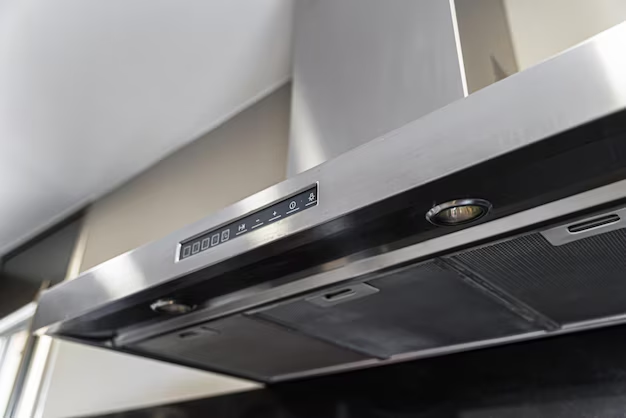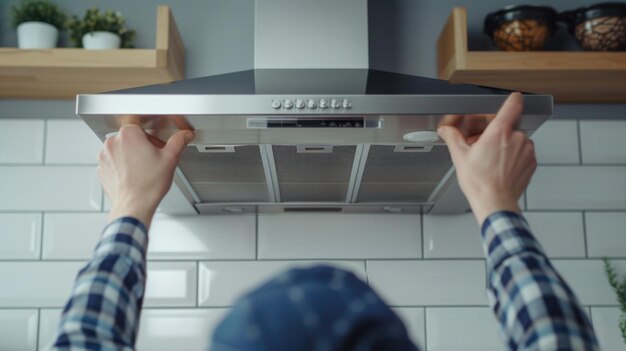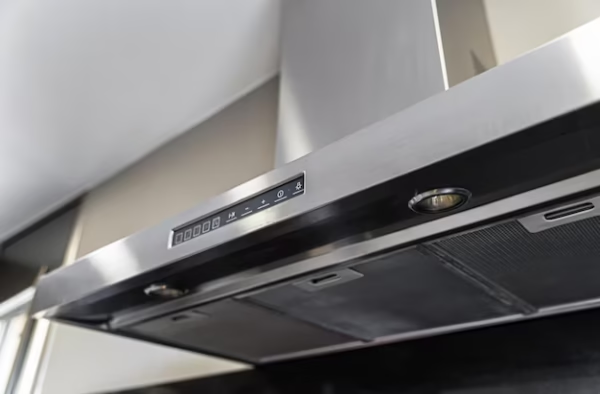
How to Maintain Commercial Kitchen Exhaust Systems (& Why It Matters)
Your commercial kitchen exhaust system is probably one of the last things on your mind during a busy service. But what goes unseen above your stoves and fryers matters. Particularly in a busy commercial kitchen, that ductwork is doing the heavy lifting. It’s drawing away steam, grease, smoke, as well as heat, so your cooks can breathe easier and your food prep area stays safe.
Running a commercial kitchen is a high-energy and high-pressure affair. And in between all the steam and the sizzle, neglecting that network of hoods, ducts, and fans is like leaving the engine unchecked in a car. Moreover, airflow can get choked off, which might leave your kitchen smoky, hot, and unpleasant to work in. And inefficiency? That shows up in your energy bills and in the lifespan of your gear.
Let’s see how you can maintain your commercial kitchen exhaust system properly, from filter cleaning and duct inspections to scheduling deep commercial kitchen exhaust cleaning.
Why Exhaust System Maintenance Matters

Your commercial kitchen is a powerhouse of heat, steam, and grease. With all that action happening every day, your exhaust system becomes the most essential part that helps in pulling out smoke, vapor, and fat-laden particles so your kitchen doesn’t turn into a sauna. However, without proper maintenance, this system may become your liability.
Think about it: grease doesn’t just disappear. It builds up in hoods, ducts, as well as fans and creates a highly flammable environment. One stray spark and you’re staging a potentially devastating fire. Then there’s airflow and indoor air quality. When grease clogs your path, smoke and odor linger longer as well as make the kitchen environment extremely uncomfortable and unsafe for your team.
Above all, compliance matters, too. When local fire codes and safety regulations often demand exhaust maintenance, failing to comply could mean huge fines or insurance issues.
How to Maintain Commercial Kitchen Exhaust Systems
A well-maintained exhaust system is non-negotiable. Here’s how you can take care of it.
Regular Cleaning
This is all about surface-level grease. Wipe down hoods, clean surfaces, and remove grease deposits before they build up. These tasks might be daily, weekly, or monthly depending on how heavily you cook. The idea is simple: to keep grease from accumulating where it causes trouble.
Professional Deep Cleaning
There will definitely be areas out of reach, no matter how diligent your staff is. This is where a professional restaurant hood cleaning service comes in. They dismantle parts, deep-clean duct interiors, apply high-pressure washing or steam treatments, and leave things “bare metal clean.” It’s best to schedule it during a slow time, maybe every 3 to 6 months, depending on how busy your kitchen is.
Filter Maintenance
Filters catch grease before it heads into the ducts, so they’re important as well. Pull them out regularly, soak them in hot, soapy water or degreaser, scrub gently, rinse, dry completely, and reinsert. Replace any filters that are damaged or worn out, as a clogged or broken filter impairs airflow and puts stress on the system.
Fan and Motor Inspection
Your exhaust fan does the heavy lifting. So, check for unusual noises, vibration, or sluggish movement. Moreover, inspect the blades for grease coating, clean them, and make sure the motor bearings are lubricated if the design allows. Lastly, replace them before they cause bigger failures.
Ductwork Inspection
Finally, inspect inside the ductwork for buildup, corrosion, blockages, leaks, or sagging sections every so often (at least annually or more for extremely busy kitchens). Use access panels or ports. If you spot heavy deposits (especially in hidden sections), it’s time for a professional commercial kitchen exhaust cleaning crew. Have the ductwork cleaned professionally if grease layers accumulate beyond safe limits.
Hire a Professional for Commercial Kitchen Exhaust Hood Maintenance
You and your team must be experts in creating amazing food but might not be in dismantling and degreasing complex ventilation systems. The daily wipe-downs are certainly crucial. But the deep cleaning of your exhaust hood, ducts, and fans is a job that absolutely demands certified restaurant hood cleaning services. However, this isn’t about outsourcing a chore. It’s about investing in expertise (like SDI Quality) that protects your business.
Think about what’s at stake. This is when you find out that these professionals truly go above and beyond to keep your business running smoothly and safely. They’ll reach inside duct bends, inspect behind panels, as well as remove stubborn grease layers you might never even see.
But above all, one of the biggest perks is code compliance and documentation. Since they know local fire and health regulations, they provide before‑and‑after photos, inspection reports, and certificates. And that paperwork is gold during audits, insurance checks, or surprise inspections.
Lastly, think about the risk management. Grease buildup is a leading cause of kitchen fires. But experts can remove those dangerous layers as well as reduce the chance of a costly blaze. And because they use specialized equipment and cleaning agents, they’ll do the job more thoroughly, without damaging your hood, ductwork, or motor.
Conclusion
Maintaining a commercial kitchen’s exhaust system isn’t just an item on your annual to-do checklist. When you stay proactive with regular commercial kitchen exhaust cleaning, filter checks, duct inspections, and periodic expert cleans, you’re protecting your team, your equipment, and your bottom line. You’re also reducing fire risk, improving air quality, and keeping your kitchen running smoothly.
If tackling all that sounds overwhelming (or you’d rather leave it to trusted hands), take a look at what SDI Quality offers. Our team handles everything from hood and duct cleaning to fan and motor servicing, all the way down to “bare metal” standards. This makes sure every nook and cranny is safe as well as compliant.
Ultimately, think of maintenance as an investment, not an expense: it keeps your kitchen safer, cuts downtime, and avoids surprise fines or fire hazards. If you’d like help getting started or want professionals to support your kitchen safety program, contact us at SDI Quality. We’d be happy to connect with you and help you sketch out a plan you can own in‑house.




